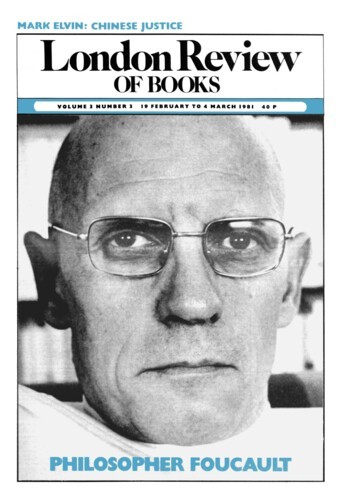Extravagance
Ross McKibbin, 2 February 1989
A few years ago the present director-general of NEDO, Mr Walter Eltis, told me that in due course Keynes would simply be a footnote in the history of economic theory. If so, it will be a stupendously long footnote, for additions to the already vast Keynesian literature mount by the day, not least from Mr Eltis himself. The reason why the literature mounts is obvious enough. Keynes stands as a reproach to a society which, not once but twice, has permitted (and indeed partly created) large-scale unemployment and everything that accompanies it – poverty, waste, unearned privilege – and which has justified these things by recourse to the commonsense maxims of bourgeois life. Keynes has earned his enduring power to irritate because his economics were designed to subvert these maxims: but, unlike Marx, who inhabited ‘the underworld’ and whose economics were too flawed anyway, he did so from within the house. While there is any room for guilt or shame in our society Keynes will remain central to our public life, however much some would wish it otherwise.’



